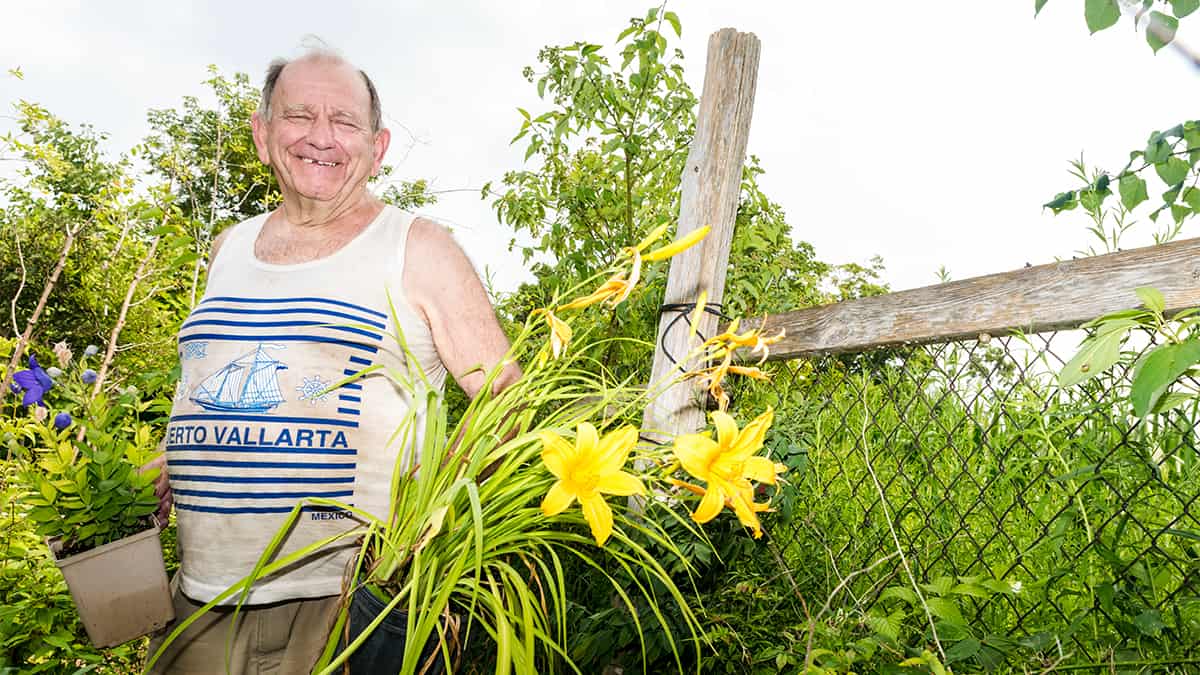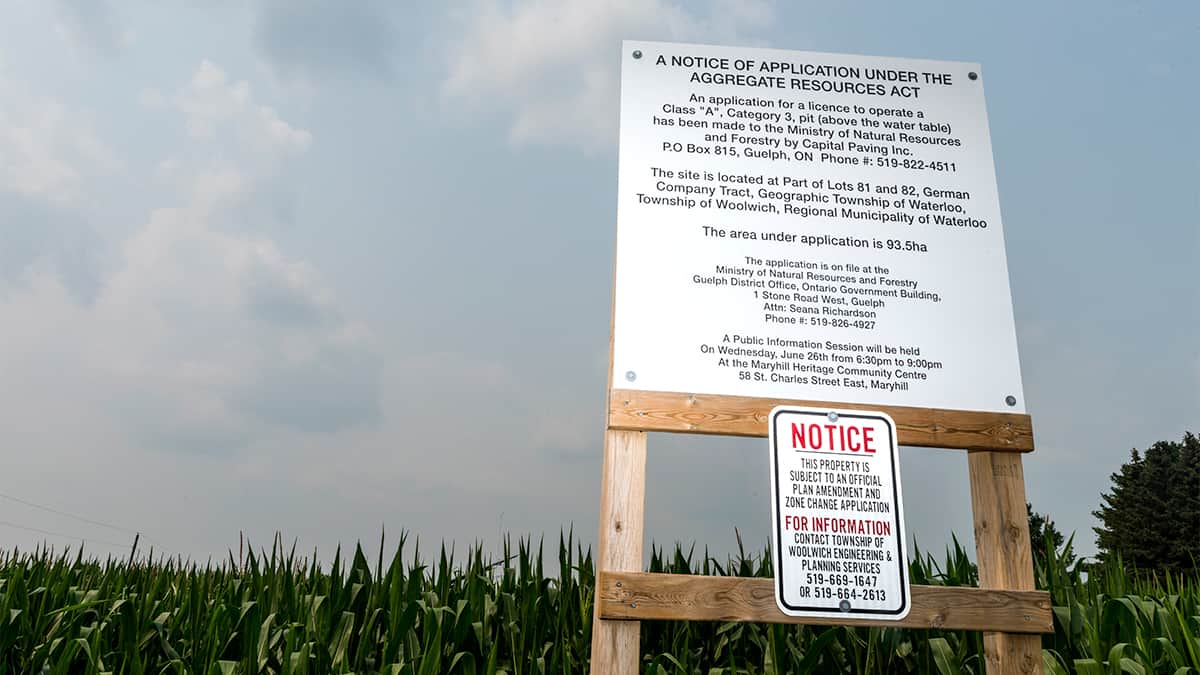Among the most vocal opponents of a gravel pit proposed for a site south of Maryhill, Fred’s Greenhouse & Nursery is pushing for officials to reject the application from Capital Paving.
A multi-faceted operation, the owners see many pitfalls in line with community concerns about noise, dust and dangers due to increased truck traffic.
Situated next door to the pit location, Fred’s Greenhouse is about more than selling plants. It’s a multi-generational family business, a cat rescue operation and a site for education about Indigenous culture through farming, among other offerings, with all at risk due to the bid to mine gravel on 230 acres of farmland centered on 1195 Foerster Rd.
“To be honest, I’m incredibly anxious about the future of the land, full stop, because I believe those programs will come to an end,” said Lisa Hodgkinson, a teacher at Resurrection Catholic Secondary School whose family owns the land her uncle’s greenhouse sits on.
Hodgkinson can trace her roots back to the early settlers of Maryhill, noting her family has been here since the beginning. The farmland occupied by her family is used in a multitude of ways, including in her lesson plans.
“About 10 years ago, I started teaching [about] Indigenous people in a global context. So we’ve been coming here for 10 years to do the land-based part of that class,” explained Hodgkinson. “[Students] have built [a] sweat lodge, they’ve rendered bear fat. They’ve learned cedar teachings and tobacco teachings.”
The Indigenous lessons are just the tip of the iceberg, Fred and his family have been using their space and farm to support numerous communities and individuals who would otherwise be left out.
“There’s a lot of people who would otherwise be marginalized, are here and they find safety,” said Hodgkinson.
One of those individuals is Tichaona Magama, originally from Zimbabwe, who for the past four years has been using a small part of the land to reconnect children with the land.
“We turned the space into an area where we can bring youth, especially youth of colour, where they can have access to land, access to learn how to grow things, access to a space where you can find some healing,” said Magama during a presentation to Woolwich council on July 13. “We use this to teach Indigenous ways that we grew up with in Africa to our kids here to understand.”
He says the gravel pit poses a significant risk to his organic farm. Capital Paving has said that they will mitigate the dust from the pit through the use of water, but seeing as the farm is so close, Magama isn’t convinced.
“I don’t know how you can avoid dust just being 100 metres away from the proposed site. I don’t know how you can totally not affect the water that is being used when the pit is just 100 metres away from where we are doing all this [farming],” said Magama. “I don’t know how it will be possible to keep bringing youth to learn and to interact and find a sense of ground in a space where there is going to be noise from 6 (a.m.) to 7 (p.m.) everyday.”
Capital Paving’s George Lourenco says the company has addressed such concerns in its peer-reviews studies, noting nearby residents won’t be affected by the dust.
“While the study may not talk about the nursery, it does talk about all the residences nearby,” said Lourenco. “Those were peer-reviewed by the independent experts. And it was determined by the peer reviewers that any impacts such as dust or noise are appropriately mitigated for those residences. So that would also hold true for anything else around the area as well.”
But for Woolwich Township Coun. Patrick Merlihan, the report doesn’t give enough information on the impacts that will be felt by Fred’s Greenhouse and other nearby operations such as Merry-Hill Golf Club.
“I had no idea [Fred’s Nursery] even existed… that wasn’t in the study,” said Merlihan. “Those uses weren’t really touched on much in the report, there weren’t any kind of mitigation factors and a lot of the report seemed to shy away from dealing specifically with those [issues].”
The stakes are high for Maryhill residents, who note that Fred’s Greenhouse has become a place where not only plants are cultivated to their full potential, those in the community are given space to grow as well.
“Fred’s Greenhouse has provided a space of healing. A space where this community can grow even more by allowing more people of colour into the area. Allowing these interactions to occur,” said Magama. “It is very significant to me that a space that seems to be opening itself to more interaction by people of colour, by Black people and marginalized youth, all of a sudden is seeming to be taken away. How do we grow community, if we are already putting barriers in the growth of community.”









